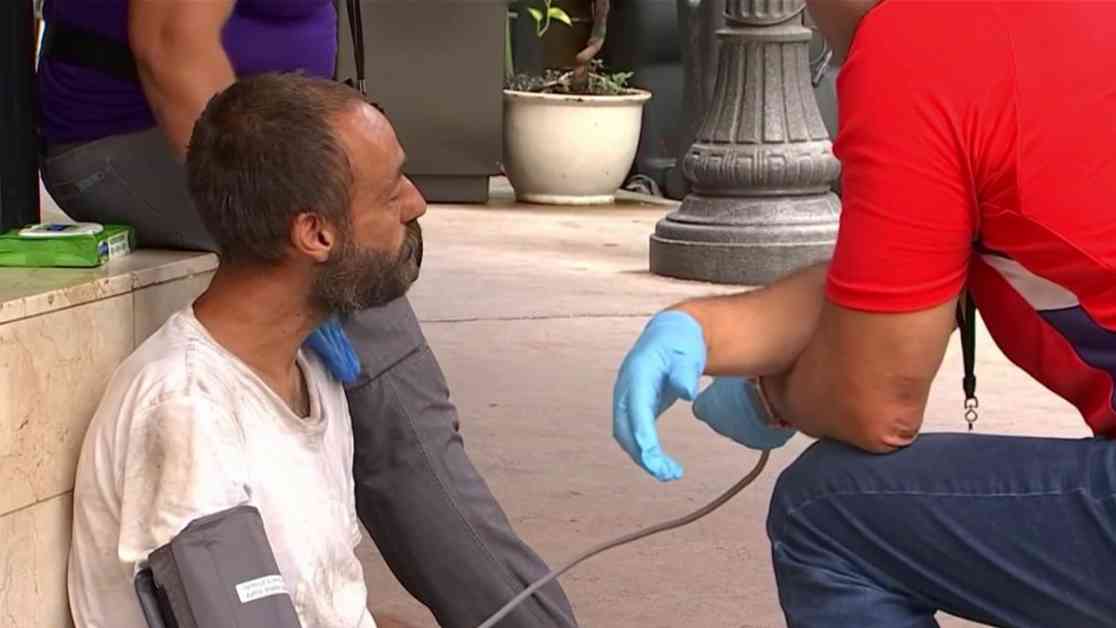South Florida’s Response to Law Banning Homeless Sleeping in Public: Plans and Strategies
Every morning, Lazarus Project case managers, a nurse, and a psychiatrist hit the streets of downtown and northwest Miami in search of individuals like Douglas. They found him hungry, suffering from lice, and in need of medication. Program manager Natalie Gild described how they worked with Douglas for 2-3 months, transforming him from being aggressive and nonverbal to happy and communicative.
The team at Lazarus Project primarily assists individuals with mental illnesses who refuse to go to shelters. Psychiatrist Luis Gonzalez explained that while there is no cure for severe mental illness, medication can significantly improve their condition, leading to better hygiene and overall well-being.
Connie, who has been homeless for 15-20 years, shared that she avoids clinics, appointments, and shelters. Despite her swollen and burnt feet, she accepted help from the team on the sidewalk.
In response to a new state law prohibiting sleeping on streets, sidewalks, and parks starting on October 1, local cities in South Florida are scrambling to find solutions to avoid fines and arrests. Miami-Dade County Homeless Trust is ramping up its efforts to address homelessness, with nearly 2,800 people living in emergency shelters and 1,000 on the streets in Miami-Dade County.
Chairman of the Homeless Trust, Ron Book, emphasized the importance of creating housing opportunities to transition people off the streets. Both Miami-Dade and Miami mayors stressed the need to exhaust all options before resorting to arrests, highlighting the ineffectiveness of arrests in providing long-term solutions.
Permanent supportive housing has been identified as a successful solution for individuals with mental illness or addictions who remain on the streets. By offering them their own space and consistent support from case managers, the Homeless Trust has achieved a 94% success rate in helping individuals off the streets.
Broward County officials are also grappling with compliance with the new law, emphasizing the high costs of incarceration compared to providing housing solutions. Sheriff Gregory Tony stressed the urgency of finding real solutions for homelessness rather than resorting to jail time.
Business owners in affected areas expressed concerns about the impact of homelessness on their establishments and called for more resources to address the issue. While some residents and business owners may have legal standing to file civil lawsuits against local governments allowing public sleeping, the focus remains on finding humane and effective solutions.
The new law has sparked debates among advocates for the homeless, with some rejecting it while others cautiously welcome it as a potential step towards ending homelessness. As local authorities work to implement strategies to comply with the law, the emphasis remains on providing shelter, support, and resources to vulnerable individuals living on the streets.


